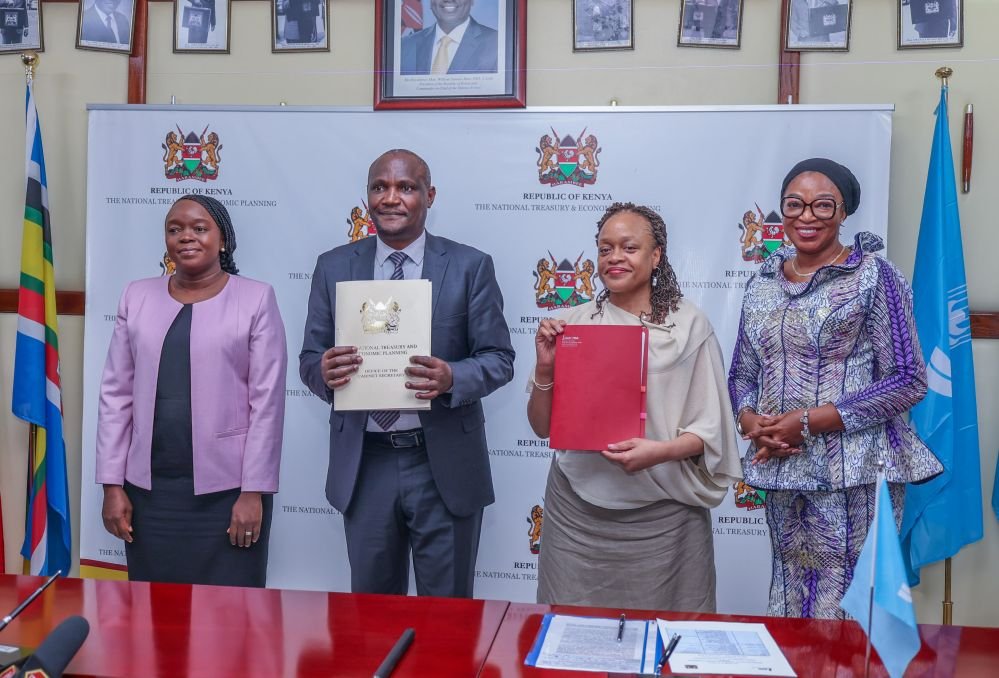Kenya and IFAD Launch $126.8 Million Project to Strengthen Food Security
The Government of Kenya and the International Fund for Agricultural Development (IFAD) have launched a new US$126.8 million investment aimed at enhancing food security, household incomes, and resilience to climate-related risks for more than two million rural residents.
The Integrated Natural Resources Management Programme (INReMP), an eight-year initiative, will focus on communities in the Cherangany Hills and Mau West water towers—areas facing increasing pressure on natural resources.
INReMP builds on the success of smaller-scale IFAD programmes previously implemented in Kenya. It is designed to improve natural resource management and promote sustainable agricultural practices, with an emphasis on reaching women, youth, and vulnerable populations. By strengthening the link between ecosystems and livelihoods, the programme seeks to foster sustainable development in some of Kenya’s most ecologically significant and degraded regions.
“It is now evident from our work that natural resource management is linked to livelihood activities and agroforestry can be sustainable and provide multiple benefits,” said Sara Mbago-Bhunu, IFAD’s Regional Director. “INReMP will leverage knowledge from our projects and scale-up interventions that have been proven to work in our previous investments in the country.”
Agriculture plays a central role in Kenya’s economy, contributing 33% to GDP and employing over half the population. However, rising climate-related challenges and unsustainable land practices have led to reduced yields, income losses, and increased vulnerability. Kenya ranks 52nd globally among countries most at risk from climate change, with projections showing a temperature rise of 1.5°C to 2.5°C between 2046 and 2065, along with more frequent droughts, floods, and erratic rainfall.
“This programme is not just about conserving the environment, it’s about securing the livelihoods of our rural communities, restoring their natural resources, and building resilience for future generations,” said Hon. FCPA John Mbadi Ng’ong’o, Cabinet Secretary for The National Treasury and Economic Planning.
Rural populations living within the Mau and Cherangany water towers face serious environmental degradation, unsustainable livelihoods, cross-boundary conflicts, and limited access to water infrastructure. The project will support communities to sustainably manage forests, wetlands, rangelands, arable land, and water sources. This is expected to result in greater forest cover, improved carbon sequestration, reduced soil erosion, and fewer conflicts over natural resources.
To ensure long-term impact, INReMP will promote income-generating ventures such as dairy farming, poultry, apiculture, horticulture, and agroforestry. The programme will also invest in climate-resilient infrastructure, including water systems, renewable energy, and weather and climate information services. Additionally, it will support access to climate financing mechanisms to help farmers adapt and thrive under changing environmental conditions.
The total cost of the INReMP initiative is estimated at US$262.8 million, co-financed by IFAD (US$126.8 million), the Green Climate Fund (US$40 million), the Government of Kenya (US$23.5 million), the Global Environment Facility (US$7.14 million), the private sector (US$10.1 million), and project participants (US$8 million). An additional US$47 million remains open for new and interested financiers to contribute.
Since 1979, IFAD and its partners have invested in 21 projects in Kenya, valued at US$1.2 billion, directly benefiting over four million rural households.



